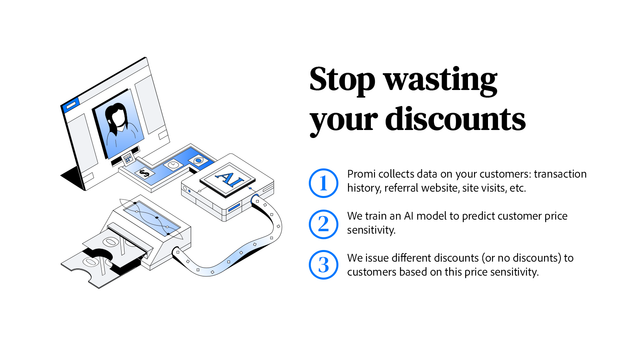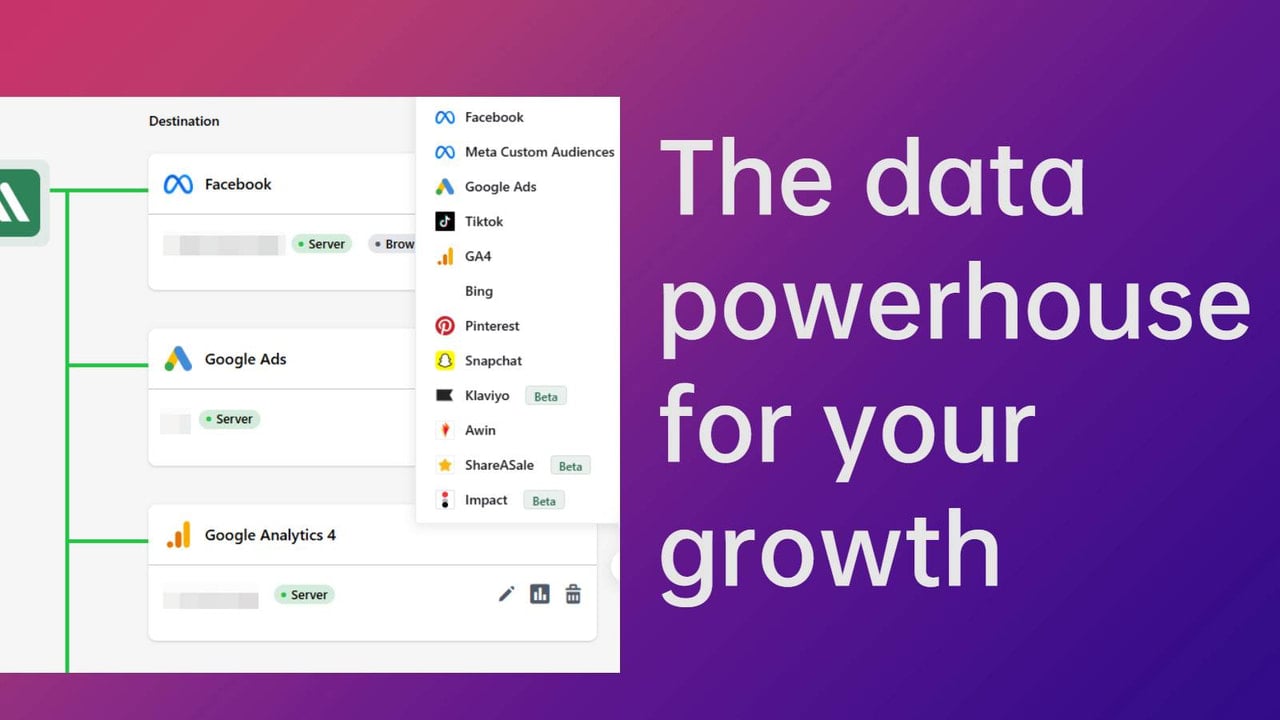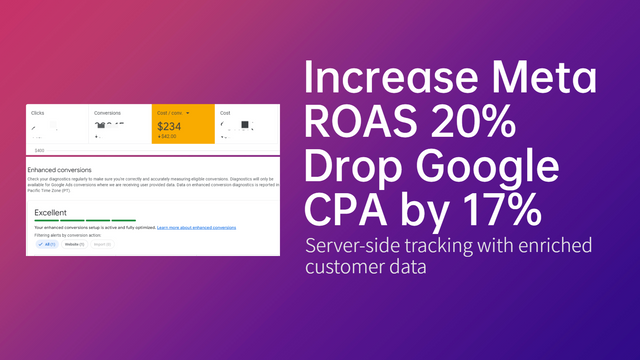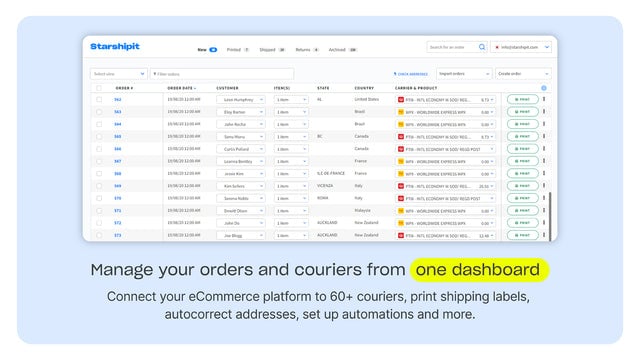In the fast-paced world of e-commerce, finding the right platform for your online store is crucial. Shopify Plus has emerged as a dominant player, offering scalability, flexibility, and a range of features designed to power large-scale businesses. But what about its competitors? In this comprehensive comparison, we'll take a close look at the top alternatives to Shopify Plus and evaluate their key features, pricing structures, and overall value for money.
Understanding Shopify Plus: An Overview
Before diving into the competition, let's briefly explore what makes Shopify Plus stand out. Designed for high-growth businesses, Shopify Plus offers a robust set of features tailored to meet the complex needs of enterprise-level merchants. With its user-friendly interface, seamless integrations, and scalability, Shopify Plus has become a go-to choice for many businesses.
But as the saying goes, "there's always something better." So, let's analyze the alternatives to Shopify Plus and see how they stack up.
Key Features of Shopify Plus
Shopify Plus boasts a plethora of features that set it apart from its competitors. From advanced analytics and reporting to customizable checkout experiences, Shopify Plus offers extensive tools to help businesses optimize their operations. Additionally, it provides multi-channel selling capabilities, enabling merchants to reach customers across various platforms.
One of the standout features of Shopify Plus is its advanced analytics and reporting capabilities. With this feature, businesses can gain valuable insights into their customers' behavior, allowing them to make data-driven decisions. The customizable checkout experiences offered by Shopify Plus also play a crucial role in enhancing the overall customer journey. Merchants can tailor the checkout process to align with their brand identity and provide a seamless and personalized experience for their customers.
Another key feature of Shopify Plus is its multi-channel selling capabilities. In today's digital landscape, it's essential for businesses to have a presence across various platforms. Shopify Plus enables merchants to sell their products not only on their online store but also on social media platforms, marketplaces, and even in physical retail locations. This omnichannel approach allows businesses to reach customers wherever they are, increasing their chances of making a sale.
Pricing Structure of Shopify Plus
When it comes to pricing, Shopify Plus operates on a tiered system based on revenue and business needs. While it may be a significant investment for some, the scalability and extensive support offered by Shopify Plus can justify its cost for businesses with substantial growth potential.
Shopify Plus offers three pricing plans: Basic, Advanced, and Plus. The Basic plan is suitable for businesses with lower revenue and fewer complex needs, while the Advanced plan caters to businesses with higher revenue and more advanced requirements. The Plus plan, on the other hand, is designed for enterprise-level merchants with significant growth potential.
One of the advantages of Shopify Plus's pricing structure is its scalability. As businesses grow and generate more revenue, they can easily upgrade to a higher-tier plan to access additional features and support. This flexibility allows businesses to align their investment with their growth trajectory, ensuring they get the most value out of their Shopify Plus subscription.
Introducing the Top Competitors
Now that we have a clear understanding of Shopify Plus, let's dive into the top competitors vying for the top spot in the e-commerce arena.
BigCommerce: A Close Rival
BigCommerce emerges as a formidable alternative to Shopify Plus. With a robust set of features and a user-friendly interface, BigCommerce caters to businesses of all sizes. It offers a seamless migration process, making it an attractive choice for those looking to switch platforms.
One of the key advantages of BigCommerce is its extensive range of built-in marketing tools. From SEO optimization to email marketing campaigns, BigCommerce provides businesses with the necessary tools to drive traffic and boost conversions. Additionally, it offers a wide selection of responsive themes, ensuring that your online store looks great on any device.
Furthermore, BigCommerce boasts a strong ecosystem of third-party integrations. Whether you need to connect with popular payment gateways, shipping providers, or marketing platforms, BigCommerce has you covered. This level of flexibility allows businesses to create a tailored e-commerce experience that meets their specific needs.
Magento: The Open-Source Giant
If you're seeking a highly customizable and scalable platform, Magento is worth considering. As an open-source solution, Magento provides complete freedom for businesses to tailor their online stores according to their unique needs. However, it requires a higher level of technical expertise to maximize its potential.
One of the standout features of Magento is its ability to handle large product catalogs and high transaction volumes. Whether you're running a small boutique or a multinational corporation, Magento can handle the demands of your business. Its robust architecture and advanced caching mechanisms ensure optimal performance, even during peak traffic periods.
Moreover, Magento offers a wide range of extensions and modules that enhance the functionality of your online store. From advanced inventory management to personalized marketing campaigns, Magento provides businesses with the tools to create a truly immersive shopping experience for their customers.
WooCommerce: The WordPress Powerhouse
For WordPress enthusiasts, WooCommerce is a top contender. Built as a plugin for the popular content management system, WooCommerce seamlessly integrates with WordPress, offering an extensive range of themes, extensions, and customization options.
One of the main advantages of WooCommerce is its ease of use. With a familiar interface and intuitive setup process, even beginners can quickly get their online store up and running. Additionally, WooCommerce provides a wide range of payment options, making it convenient for customers to complete their purchases.
Furthermore, WooCommerce offers a vibrant community of developers and designers. With thousands of themes and plugins available, businesses can easily customize their online stores to match their brand identity. Whether you're looking for a sleek and modern design or a more traditional aesthetic, WooCommerce has the resources to bring your vision to life.
Comparing Key Features
Now that we've acquainted ourselves with the top competitors, let's delve deeper into the key features of each platform to determine which one best suits your business needs.
When it comes to choosing an e-commerce platform, there are several factors to consider. In this comparison, we will examine the e-commerce capabilities, customization options, and scalability of three popular platforms: Shopify Plus, BigCommerce, and Magento.
E-commerce Capabilities Compared
When it comes to e-commerce capabilities, all three platforms offer robust solutions. Shopify Plus provides an all-in-one package, making it easy for businesses to set up and manage their online stores. With features like inventory management, payment gateways, and marketing tools, Shopify Plus offers a comprehensive solution for businesses of all sizes.
BigCommerce, on the other hand, focuses on providing advanced SEO features to help businesses improve their online visibility. With built-in SEO tools, customizable URLs, and mobile optimization, BigCommerce ensures that your store ranks well in search engine results and attracts more organic traffic.
Magento, known for its flexibility, offers unmatched customization options. With its open-source nature, businesses can have complete control over their storefront's look and feel. From custom themes to personalized user experiences, Magento allows businesses to create a unique online presence that aligns with their brand identity.
Customization Options Across Platforms
Customization is crucial for businesses aiming to create a unique online presence. While Shopify Plus offers a range of customizable themes, allowing businesses to tailor their store's design to their liking, Magento takes customization to the next level with its open-source nature. With Magento, businesses can not only customize the appearance of their storefront but also modify the platform's core functionality to suit their specific needs.
Meanwhile, WooCommerce, a popular e-commerce plugin for WordPress, leverages the vast library of WordPress themes and extensions for unparalleled customization possibilities. With thousands of themes and plugins available, businesses can easily customize their WooCommerce store to match their brand and add additional functionality as needed.
Scalability: Which Platform Grows with You?
Scalability is a key consideration for businesses looking for long-term growth. Shopify Plus has a proven track record of handling high-volume stores, making it an ideal choice for businesses expecting significant growth. With its robust infrastructure and dedicated support, Shopify Plus ensures that your store can handle increased traffic and sales without any performance issues.
BigCommerce, known for its scalability, offers excellent performance optimization tools. With features like automatic scaling, CDN support, and advanced caching, BigCommerce can handle high traffic loads and deliver a seamless shopping experience to your customers.
Magento, as an open-source platform, can be highly scalable but requires strong technical expertise to manage its infrastructure effectively. With the right team and resources, businesses can scale their Magento store to handle thousands of products and millions of visitors.
As you can see, each platform has its own strengths and caters to different business needs. It's important to carefully evaluate your requirements and consider factors like e-commerce capabilities, customization options, and scalability before making a decision. By choosing the right platform, you can create a successful online store that meets your business goals and provides an exceptional shopping experience for your customers.
Pricing Comparison
Finally, let's evaluate the pricing structures of our top contenders to determine which one offers the most value for money.
Understanding the Cost of BigCommerce
BigCommerce operates on a tiered pricing model, similar to Shopify Plus, with plans ranging from Standard to Pro and Enterprise. The pricing tiers are determined by the level of features, support, and revenue requirements.
Breaking Down Magento's Pricing
As an open-source platform, Magento offers both a free Community Edition and a paid Enterprise Edition with more comprehensive features and support. However, the Enterprise Edition comes with a significant price tag, making it suitable for larger businesses with the budget to invest in their e-commerce infrastructure.
Is WooCommerce the Most Affordable Option?
With its seamless integration with WordPress, WooCommerce gains an advantage in terms of affordability. While the plugin itself is free, it may incur additional costs for extensions, themes, and hosting. However, for businesses operating on a tight budget, the overall cost of running an online store with WooCommerce tends to be lower compared to its competitors.
In conclusion, choosing the right e-commerce platform requires careful consideration of your business's unique needs. While Shopify Plus remains a strong contender, other platforms like BigCommerce, Magento, and WooCommerce offer compelling alternatives with their own sets of strengths and weaknesses. By evaluating key features, scalability, and pricing structures, you can make an informed decision on which platform will best support your business's growth and success.
As you consider the best e-commerce platform to elevate your online store, remember that the right Shopify apps can significantly enhance your site's functionality and user experience. OwlMix is your ultimate destination for discovering innovative and effective apps tailored to your Shopify store's needs. With a diverse range of categories including advertising, email marketing, and inventory sync, you're sure to find the perfect addition to your Shopify toolkit. Let Owlfred, our knowledgeable and friendly mascot, guide you through our curated selection. Find your next Shopify app with OwlMix and watch your e-commerce success take flight!

















